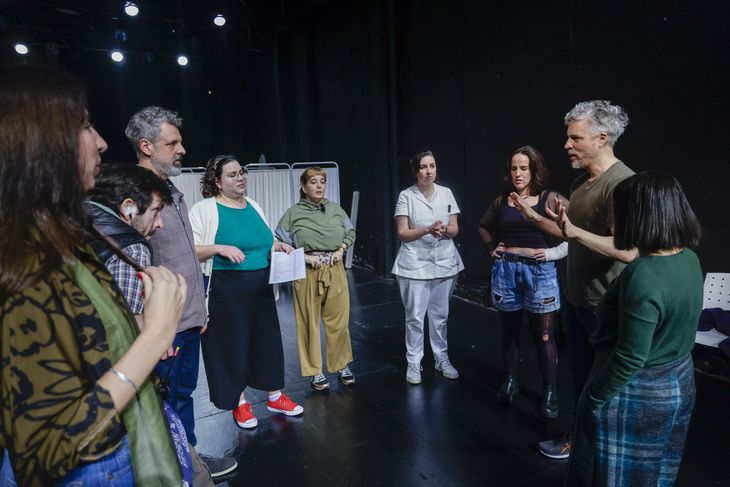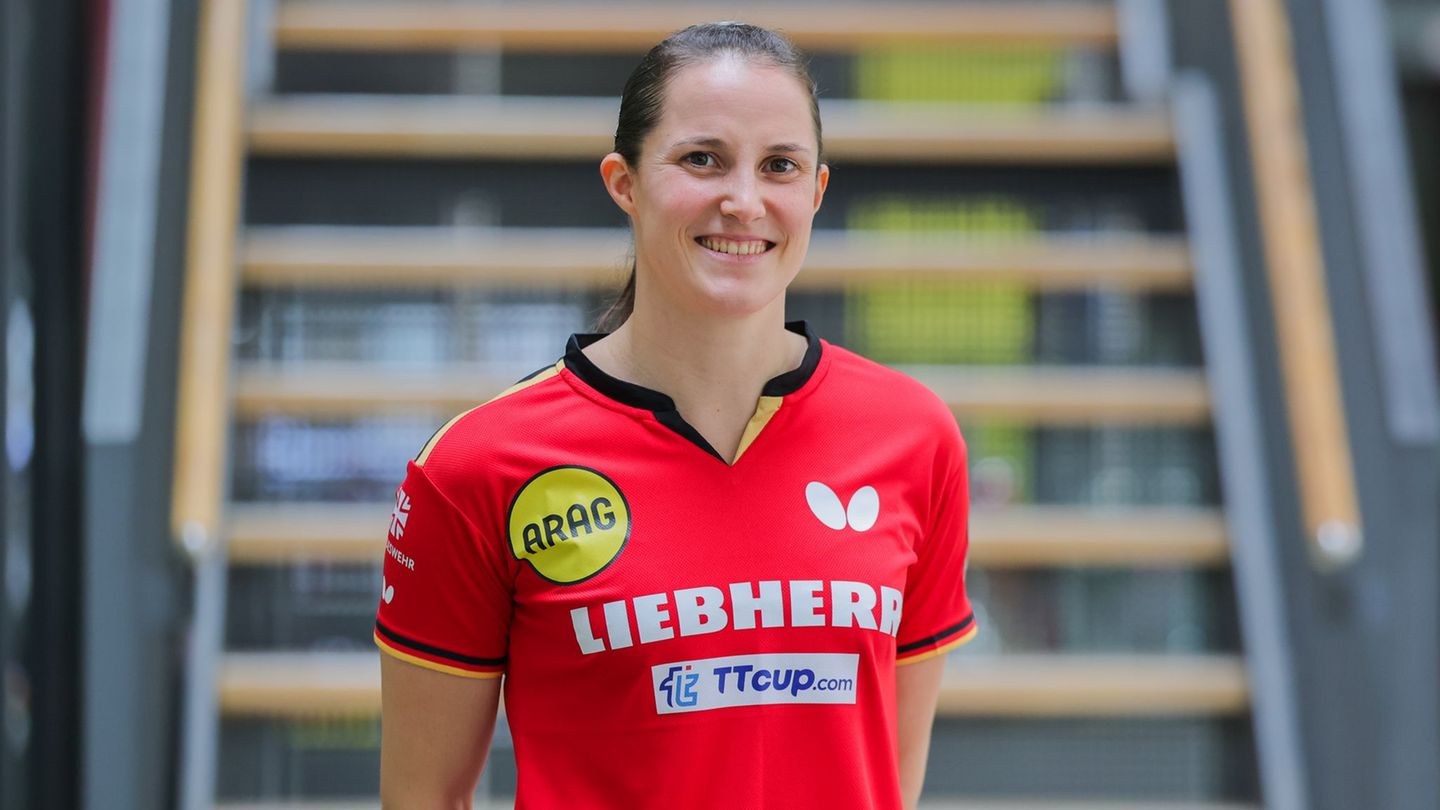“Independent theatre is starting to become elitist because those who have the most backing produce it, it is the law of the strongest. This is our reality, a theatre of pure strength and blood,” says Federico Olivera, author and director of “The background of the scene”, his third work as an author and director where he addresses identity and family history.
They act Fernanda Bercovich, Fabiana Brandán, Fiorella Cominetti, Lautaro Murua, Fernanda Pérez Bodria, Catalina Piotti and Santiago Zapata, with performances on Saturdays at 7pm at El Portón de Sánchez. We talked about the play with Olive, who also stars in one of the most talked about series on Disney+, “The absent voice”.
Journalist: Where does your interest in Heidegger come from, which triggers questions for your work?
Federico Olivera: The writing process began with this situation of the sisters who meet again in a sanatorium because their mother had a stroke. When faced with the need for a kidney transplant, the first question arises: who takes the histocompatibility tests because if it comes back positive, you have to decide whether to donate or not. There is one of the sisters who does not hesitate, another who is in the middle and another who refuses to donate. In this difference I saw how individuality and collective being are raised. The filming of a movie in this sanatorium brings up a new contingency. I began to see that there was a conflict of identity, who they were, whether they were authentic or not, and Heidegger’s “Being and Time” appeared, which raises authentic or inauthentic beings, someone who follows their own ethics and individuality in a temporality or the entity inscribed in a whole. This image helped me to construct this thing of being part of a whole and being ordered, which also reminds me of Foucault. The system tries to order us within an organization, someone who organizes and others who obey.
The background of the scene. Photo Tupac Larriera. b-2 (1).jpg
The cast of “The Back of the Scene”, which is performing at El Tinglado.
Q: The work claims to address the problem of identity and family history, what should be, mandates, what else can you say about this?
FO: Here we have an omnipresent matriarch, a mother who does what she wants, without filter and is arbitrary. But that image is incomplete, it is the vision that the daughters have of her. In family roles one assumes a place that is organized, so it is good to be able to separate oneself to find one’s own identity and ask that question. In the case of Viviana, the sister who wants to write, the mother kept telling her that she lives on another planet, and that writing is not very productive, that it is like rambling, a very materialistic thought. Blanca, the mother, does not value this search by Viviana, who was able to distance herself and see everything from another point of view. In this occupation of a role in the family, individualities are blurred and personal desires come into conflict with what can really be done. With the weakening of that matriarch all those values are subverted and Viviana, who was able to leave that balance, when she returns and faced with that weak mother, can confront. The three manage to ask themselves what they want and discover that the mother had a life that was not what they imagined.
Q: How do you take advantage of the game of fiction within fiction?
FO: It is a resource that interests me a lot, but it proposes so many layers and forms that I cannot consider it closed. I see something very alive in it because we are also beings in real life who at times are inside a fiction, who play characters, and we are different depending on who we relate to and we see our contradictions. I see that human beings in their real life are inside a fiction that they create and believe. If one can laugh at that, it is more tolerable.
Q: Why is fiction a horror movie?
FO: It brings a sense of urgency, a latent threat, and it is not immune to the effects of the situation of them waiting in that sanatorium. One of the characters is in a loop from which he cannot escape. This horror film that takes place elsewhere begins to contaminate the situation of the hospital and the sisters.
Q: How did you think about the artistic areas of lighting, set design and costumes?
FO: The idea of dismantling was present and we thought of the most basic objects in the sanatorium. I liked the idea of the screens, which were rented for filming, stored somewhere else, and when the screens appeared we played with the actors using different shapes. They had an impact on the arrangement of the bodies. With the lighting we took the monochromatism that sanatoriums and hospitals have, where everything is one color and we tried that plus the chiaroscuro for the different moments in the same space, the contrasts. Monochromaticity could give something very uniform, flat, and although there are moments like that, there is also stridency and chiaroscuro.
_R1A1316.JPG

Q: How do you see theatre and culture today?
FO: The theatre always gives answers, what is happening artistically is stimulating, the creativity and the strength it has. It shows that it is very much alive, but when one thinks about culture, one goes to the real possibilities and the economic situation is complicated. It has always been like this but now it is more aggravated by current cultural policies. The shocks are tolerated as much as possible, an erosion begins which, as time goes by, leaves proposals and people on the way. There is also the public that accompanies it and that ends up making it possible. It happens in Argentina, not only in Buenos Aires and it is very striking. I see the theatre with optimism for the artists and the public, but in institutional terms it is complex, the lack of support and the economic crisis means that tickets have to be cheap and the work cannot be self-sustaining. There are no subsidies, or meager ones that are paid a year after their due date, which with the galloping inflation are impossible. We are in that paradox.
Source: Ambito
I am an author and journalist who has worked in the entertainment industry for over a decade. I currently work as a news editor at a major news website, and my focus is on covering the latest trends in entertainment. I also write occasional pieces for other outlets, and have authored two books about the entertainment industry.




